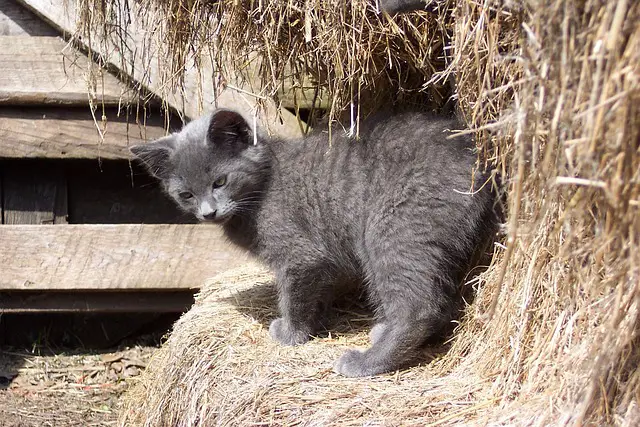Cats have been a popular choice for farmers looking to control rodent populations on their property for centuries. But do farm cats kill rats? Let’s explore the facts about farm cats and rodent control.
Do Farm Cats Kill Rats?
The short answer is yes, but not as effective as you may think.
While it’s true that cats can help keep rat populations down by killing them, they are not an ideal solution for large-scale rodent control.
This is because cats are solitary hunters, meaning they hunt alone and usually only catch one or two rats at a time. So while a single cat may help reduce the rat population on your property, it won’t be enough to make a severe dent in the problem.
In addition, cats may not be able to access all the areas where rats are present.
Rats tend to live in places that are hard for cats to reach—in walls, attics, and other tight spaces—meaning that even if a cat catches a few rats here and there, there will still be plenty left to breed and cause more damage on your property.
Finally, while farm cats can kill rats, they pose some risks. They can spread diseases such as rabies if they come into contact with infected rodents, and they can also hurt or kill other small animals on your property (like chickens).
So while having a farm cat around may help with rodent control in some cases, it’s essential to weigh the risks before making any decisions.
Will Farm cats kill mice?
Farm cats can potentially be a great asset in eliminating mouse populations from farms and other rural settings. However, while these cats can hunt and kill rodents, such as mice, whether or not they will do so depends on their temperament.
As a result, farmers should pay attention to their cats’ natural behavior before expecting them to fill their role as a mouser.
Suppose a particular cat does turn out to be exceptionally proficient at hunting mice. In that case, the farmer can feel secure that their farm is free from annoying intruders – at least regarding the rodent population.
How effective are farm cats as rodent control
Rodent control can be complicated on a farm, and combining various strategies is often the most effective approach.
One such strategy is the use of farm cats.
Because of their natural hunting instincts, well-cared-for cats can effectively keep pest populations down.
Their presence alone may be enough to frighten scavenging rodents away. However, it is essential to remember that cats should never be released onto a farm without being spayed or neutered first, as uncontrolled breeding can lead to a population explosion and cause other problems for farmers.
Additionally, cats are prone to parasite infection, so they should have regular check-ups with a veterinarian to ensure their health and well-being.
Conclusion:
Farm cats can help keep rat populations down on your property, but they should not be relied upon as a primary form of rodent control. As we’ve seen here today, there are several factors to consider when deciding whether or not having a cat is right for you—including potential risks posed by the cat itself.
If you decide to get a farm cat for rodent control purposes, ensure you take proper precautions, such as getting them vaccinated regularly and monitoring them closely for any signs of disease or injury caused by rodents. Doing so can ensure that your cat and your property remain safe.
[su_box title=”Affiliate Disclosure”]This website is supported by its readers. Please assume that all links are affiliate links. If you make a purchase from one of the links we will make a commission from Amazon. Thank you.[/su_box]




